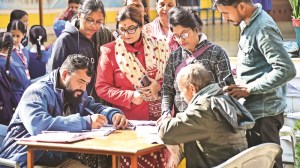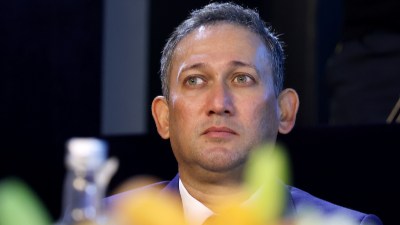Stay updated with the latest - Click here to follow us on Instagram
Electronic monitors for tankers to check water theft,wastage
Chief Minister Sheila Dikshit has given her nod to a project that promises to electronically manage the movement and work of water tankers,allowing the Delhi Integrated Multi Modal Transit System (DIMTS) to handle tankers on behalf of the Delhi Jal Board.
Chief Minister Sheila Dikshit has given her nod to a project that promises to electronically manage the movement and work of water tankers,allowing the Delhi Integrated Multi Modal Transit System (DIMTS) to handle tankers on behalf of the Delhi Jal Board (DJB).
The DIMTS,already involved with tracking of buses,will replicate the process for tankers. The back-end infrastructure for the project will remain the same as the buses. While the basic cost of infrastructure will be borne by DIMTS,the DJB will make monthly payments on the basis of performance. The cost will be monitored by the National Institute of Smart Governance.
Jal Board CEO Ramesh Negi said the idea for the project was not just to cut on pilferage of water and check corruption,but also to add to its kitty some points in consumer satisfaction. The project will also lead to savings for the DJB and make root planning more scientific.
Besides supplying water through tankers to regular colonies in case of emergencies like pipeline burst or shortage of supply,the DJB is mandated to supply water tankers at 18,349 delivery points in the city. While the department owns 250 tankers,it hires at least 500 private tankers on a daily basis to ensure supply to the unauthorised-regularised colonies.
The back-end infrastructure will remain. The system for DJB,however,will be more elaborate as their requirement is for a full solution, Sanjeev Sahai,managing director of DIMTS,told Newsline.
The DIMTS already tracks movement of 3,500 DTC buses in the city,and the process generates at least 40 lakh records each day.
There would be no chance of tankers not reaching the pre-determined point of delivery. The process will start with filling water in the tankers. Actuators will account the amount of water and authorise the limit. Tracking drivers movement (will be) on GPS. The flow metres will account for the amount of water dispensed at the destination points, Sahai said.
The DIMTS will also set up a call centre to take requests for tanker requirement,while the DJB will hold the right to prioritise consumer requirement. The equipment like flow metres,dispensers and actuators are being imported from Germany.
Importing and fitting may take another four months. The pilot trial is slated in June, Sahai said.







